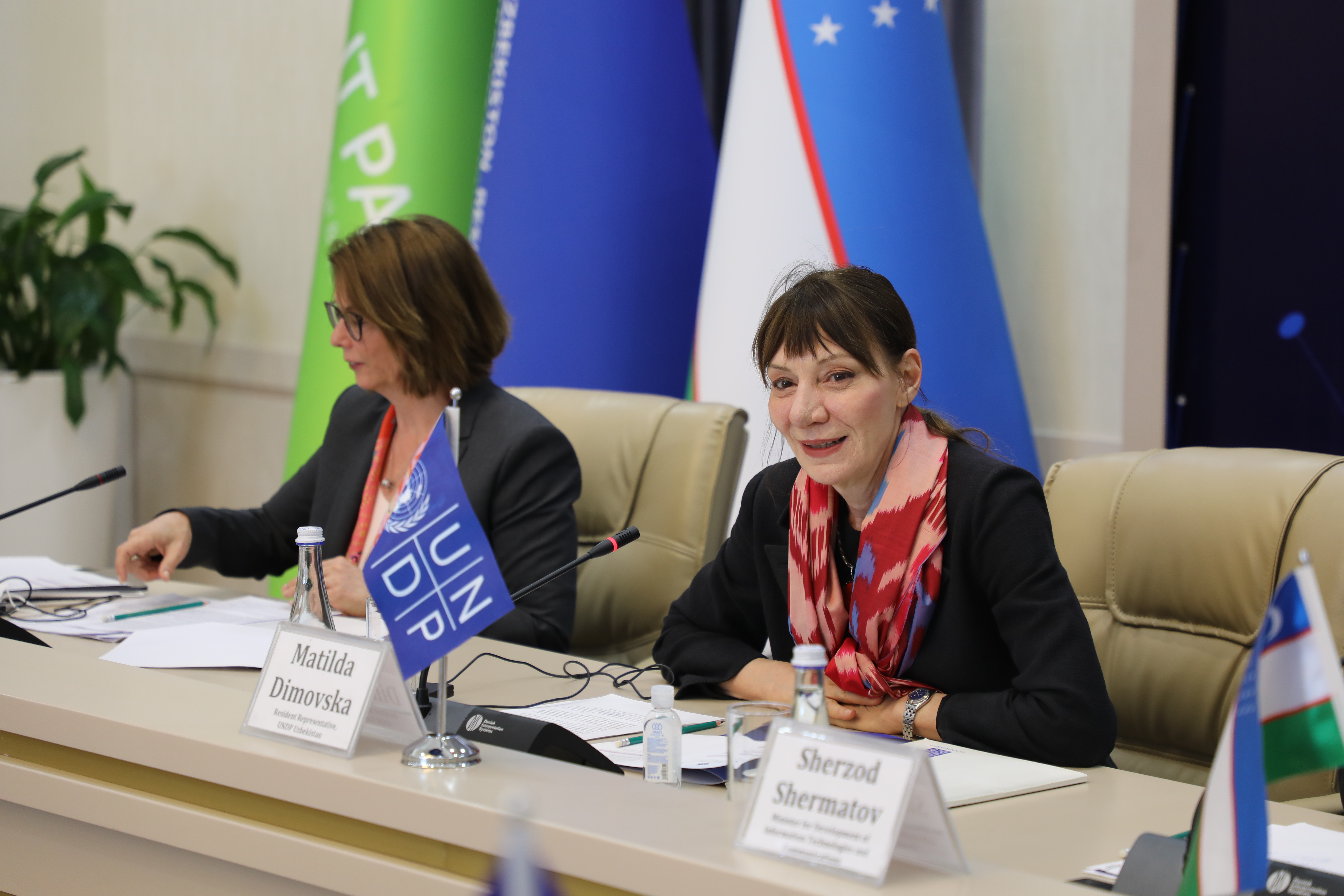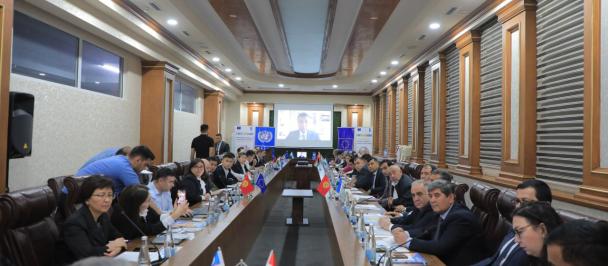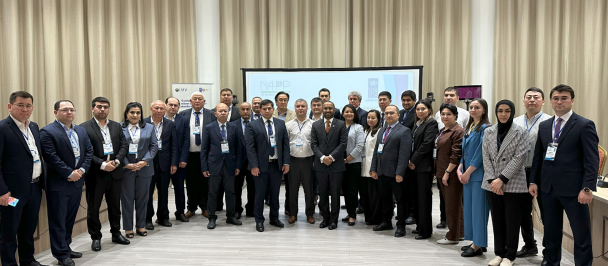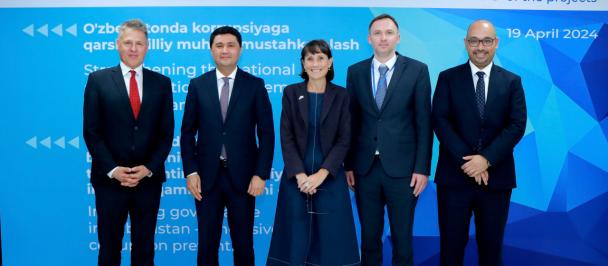Photo: UNDP Uzbekistan
Good morning, dear ladies and gentlemen. Mr. Shermatov, Minister for Development of Information Technologies and Communications, Mr. Mantovanelli, Country Manager for Uzbekistan, World Bank, Excellencies and Distinguished guests.
On behalf of the United Nations Development Programme, I welcome you to this roundtable organized jointly with the Ministry and the World Bank to discuss Inclusive Digitalization and Business Process Outsourcing in Uzbekistan. This is a second multi-stakeholder dialogue focusing on strategic issues of the country’s digital development. Back in 2020, we discussed Uzbekistan’s digitalization potential in the context of COVID-19 and realized the critical importance of digital technologies to overcome the implications of the pandemic.
Today, with the peak of the COVID-19 behind us, we explore how to leverage digitalization to build forward better, to accelerate Uzbekistan’s growth while ensuring it is more inclusive and resilient through strengthening the national capacity to integrate into the global digital economy.
Importance of inclusive digitalization for Uzbekistan and UNDP
Let me start by commending the remarkable progress in digital development of Uzbekistan in recent years – ranging from expanding the digital economy to improving digital connectivity to increased take up of online services. Even more importantly, digital development is increasingly focusing on the needs of people and shifting from the center to the regions, from cities to rural areas.
We see this human-centered approach in the recently adopted Strategy for Development of New Uzbekistan, with digitalization as a cross-cutting topic and proactive delivery of public services with focus on the elderly and people with disabilities. We see it in government’s efforts to support women empowerment in the digital sector through such initiatives as “Techbika” (free IT courses for girls), IT Woman (training for women), TumarisTech (incubation and acceleration program), and others. Last but not least, digitalization is leveraged to address the issue of unemployment in Uzbekistan through targeted investments into digital education, skills development and the creation of an enabling ecosystem for digital entrepreneurship.
The concept of digital inclusion is also a priority for UNDP, which is undergoing digital transformation to become a more effective organization and to accelerate progress on Agenda 2030. The recently adopted new UNDP Digital Strategy by 2025:
- puts human rights at the center,
- promotes inclusive and gender-sensitive approaches that leave no one behind,
- advocates for open digital standards and open data,
- and works to strengthen local digital ecosystems.
UNDP’s Digital Engagement in Uzbekistan
UNDP has been a long-standing partner of the Government of Uzbekistan in creating inclusive and resilient digital ecosystems by combining a good understanding of the local context with best international practice. Currently, digital components exist in almost all of our current interventions on good governance, inclusive growth and climate action.
In 2021, jointly with the Ministry of ITC we conducted a Digital Readiness Assessment of Uzbekistan – a tool to analyze the country’s digitalization in 5 key dimensions: infrastructure, government, regulation, business, and people, and to identify opportunities for its inclusive digital transformation. As we are planning to share the full report shortly, let me highlight the key findings of the assessment – with a score 3.57 out of 5, Uzbekistan’s current state of digital readiness is assessed as systematic, which means that the country is systematically advancing in key areas of digital transformation based on identified priority areas.
However challenges remain, especially on digital connectivity, uptake of digital services, regulations and data, and digital payment. In particular, although Uzbekistan has made significant progress in enhancing digital connectivity, the price for mobile internet and broadband remains high, where the affordability of 1GB of broadband data is still above 1% of GNI.
Long-term funding cycles for digital projects appears to be a large barrier and research indicates a lack of efficient mechanisms for financing, planning and management of digital projects. Despite a notable increase in the number of digital public services, not all services are delivered online, and some services still require an offline presence with duplication of requested documents.
While initial policies and laws for digital development are established, many believe that IT regulations are outdated. Also, lack of clear guidance on opening up public data – with due consideration of privacy and data protection – creates regulatory gray zones that often undermine free data access.
Digital payments are mostly limited to Tashkent, despite the large capacity for online payments countrywide. In fact, only 23% of the population is found to be using remote banking systems.
Event
The questions are many and it is time to comprehensively look into them. Today’s round-table is an attempt to continue our strategic discussion, and help us to:
- Take stock of the progress in Uzbekistan’s digital development over the past two years and explore ways to accelerate its inclusive digital transformation;
- Review how well the country is positioned to leverage BPO and KPO in terms of legal and institutional framework, digital infrastructure, digital education and other aspects;
- and finally today’s event is a good opportunity for the international development actors to coordinate its activities and plans on supporting the government’s pressing priorities.
I encourage us all to use the opportunity of the round-table and wish us all a productive dialogue.
Thank you very much for your attention!

 Locations
Locations



